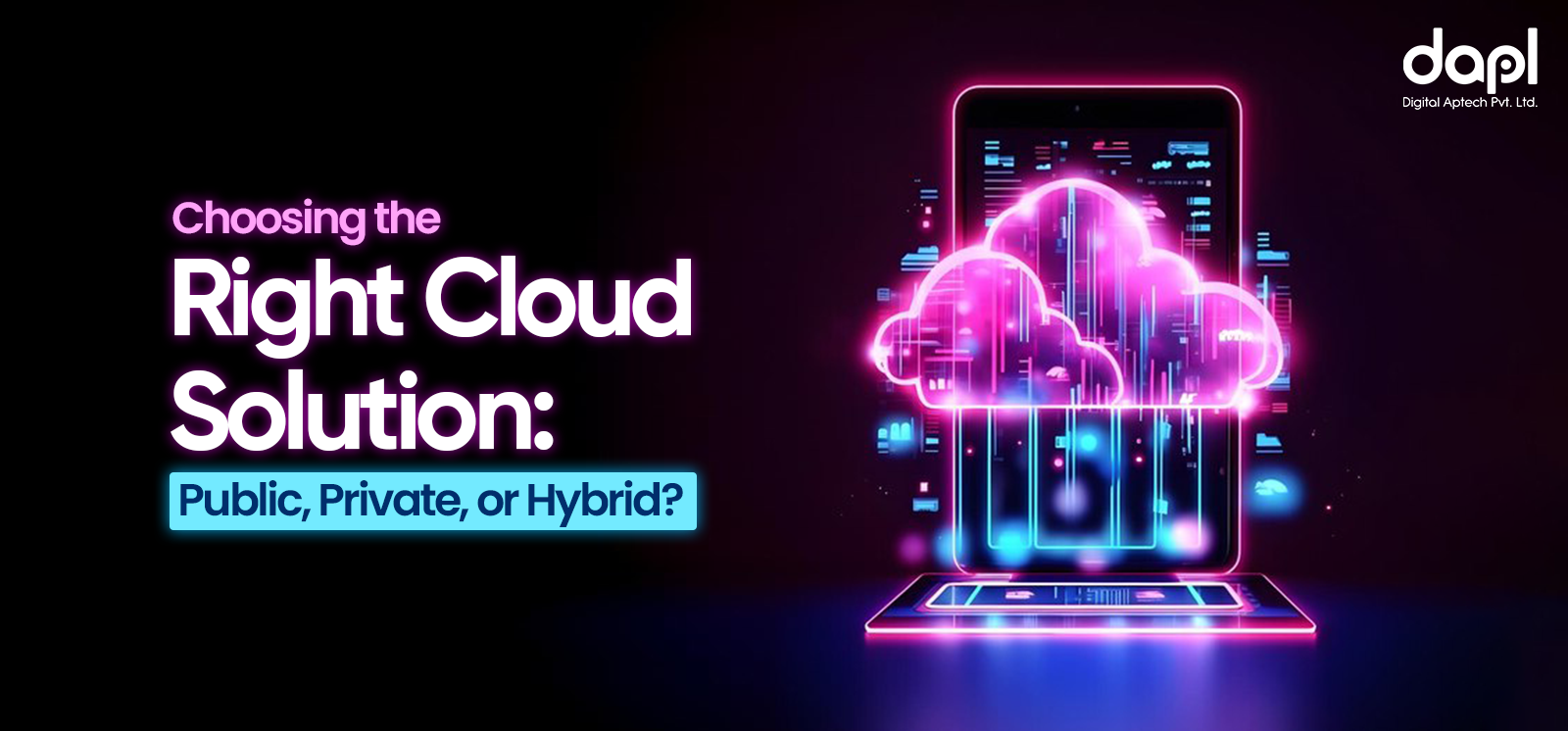Cloud computing has gained impressive traction in the last decade across all major industry verticals. More and more organizations are getting on board to benefit from the efficiency that cloud-based solutions have to offer.
However, deciding whether to choose public, private, or hybrid cloud solutions is something that can be confusing even for the most experienced brands.
Planning to incorporate cloud-based solutions for your brand but not sure which one to opt for? Let’s weigh the benefits and challenges of each type of cloud solution here.
What are Public Cloud Solutions?

As the name suggests, a public cloud is a shared cloud. A third-party agency will deliver computing, storage and applications to multiple users. This type of cloud works on a pay-to-use basis and anybody can buy access and other associated services. These cloud services can be either free or subscription-based.
- Benefits:
Easy Accessibility: Option to access any app or data with an internet connection
Remotely Managed: Dedicated remote resources can collaborate smoothly
Affordable: Pricing options can be quite flexible depending on SLAs
Updated and Professionally Managed: Accurately configured hardware and up-to-date apps for business use
- Challenges:
Not Enough Security: Public cloud isn’t the best when it comes to security so it’s wise to avoid it for critical IT work
Much Reliance on Vendor: Changing cloud service provider can prove to be expensive and complex
No Cost Control: Costs can rise down the line in case of any large-scale project usage
Low Control on Infrastructure: There isn’t much control over infrastructure, which could potentially impact regulation compliance
What are Private Cloud Solutions?

Private cloud solutions stand for a specific cloud computing model that is meant for one organization and its usage. The features and benefits that you receive from a public cloud network, however, you don’t have to share the cloud network with other users or businesses.
- Benefits:
Customized Security: Brands can customize security protocols and configurations based on unique requirements and workloads for compliance with industry regulations
Efficient: The private cloud network is highly reliable when it comes to performance and efficiency
Scalable: Businesses can achieve scalability to comfortably meet high unpredictable demands as and when required without undermining business security or efficiency
Superior Flexibility: Private cloud infrastructure can be modified as per the unique IT requirements of an organization
- Challenges:
Complicated Management: Brands will need higher involvement of in-house experts for smooth maintenance of the private cloud network
Higher Costs Involved: The TCO or Total Cost of Ownership is usually higher than other types of cloud solutions
Not Suitable for Remote Usage: Remote users might face certain restrictions in using the cloud solutions due to strict security arrangements
Scalability Might Vary: In case the cloud data center has limited computing resources, it might cause issues in scalability
What are Hybrid Cloud Solutions?

Hybrid cloud computing solutions are designed to combine the features of both private and public cloud solutions. It allows businesses to leverage the benefits of both cloud solutions while keeping data security intact.
- Benefits:
Highly Reliable: As services get distributed across different data centers, which are both public and private, hybrid solutions offer the highest level of reliability
Efficient: Sensitive workload is distributed across private cloud, while regular workload through public solutions
Scalable: Easily scalable without exposing sensitive data and workload
Optimization of Workload: Sensitive workload on the private cloud and regular work on the public cloud makes workload distribution simpler
- Challenges:
Complex: Added complexity due to the management of both public and private cloud infrastructure
Integration can be a Problem: Brands need strong compatibility and integration for better management of hybrid cloud infrastructure
Data Security Risks: Increased chances of vulnerability due to frequent transfer of data across cloud infrastructure
Cost Management can be Tricky: Moving between public and private cloud infrastructure can lead to unnecessary spending
Conclusion: Choosing Digital Aptech as Your Cloud Consulting Partner
Planning to shift to cloud-based infrastructure? Not sure where and how to start? Digital Aptech can be your go-to destination.
Connect with skilled, vetted, and highly experienced cloud strategy consultants and cloud migration experts to help you prepare your business for a smooth transition to cloud-based infrastructure. Engage a remote team of cloud-based experts on suitable hiring models with the Dedicated Resource Model.
Whether you choose private, public or hybrid cloud solutions will depend on your unique IT requirements. Our expert team will help you make an informed choice.




